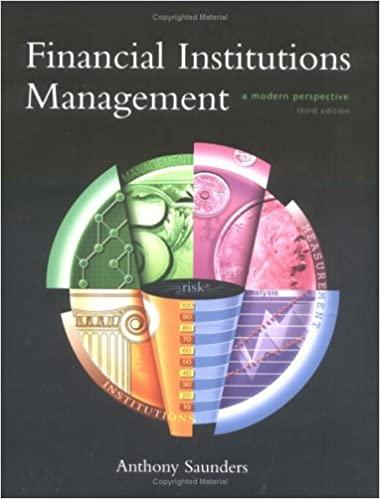Question
This story details the bond market reaction to an improvement in the economy: Weve been getting pretty good economic news for the past couple of
This story details the bond market reaction to an improvement in the economy:
Weve been getting pretty good economic news for the past couple of months unemployment claims are trending lower; nonfarm jobs are creeping up; consumer confidence is rising as stock prices climb.
So, of course, for the past couple of days U.S. government bonds have been getting crushed because bonds hate good news. This is how the bond market says, holy cow, theres a recovery in the works. Or at least it seems to think that things arent so bad that investors need to take cover in the government bond market anymore, which investors view as a safe place to park their money during troubled times.
The monster sell-off began on Tuesday, when the Federal Reserve released notes from its policy meeting. The tone was just a tad more optimistic than it has been in the past, saying the jobless rate had improved notably and that spending was up. For a central bank, thats as close to cheerleading as youll get. The Fed also reported that 15 of the 19 biggest banks in the country had aced a stress test designed to measure how well they would do if the economy spiraled out of control. Just before that, J.P. Morgan Chase announced it was buying back stock and raising its dividend. To top things off, retail sales in February jumped 1.1% and December and January sales numbers were revised up. The stock market partied.
(MORE: No Snow, No Problem: How Wall Street Profits from Weird Weather)
But, oh those Treasuries they do hate good news. A stronger economy, of course, signals an increased chance of inflation, the great enemy of all fixed income investors. It also means that investors will demand higher yields for their government bonds, causing prices to fall. (Bond yields and prices move in opposite directions.)
Other factors are making investors think that its time to switch out of the US Treasury market, with its super-mini yields, as well.
Over the past few years, investors have been piling into all manner of bond funds. ETFs have taken off all on the bet that creditworthiness is Job No. 1. Now some folks are thinking maybe its not so safe for everyone to play it safe especially if the Fed wont be taking any more extraordinary measures to prime the pump to get the economy going.
There other influences on the bond market as well. Anyone who was hiding from a crackup in Europe may have decided to take their money out of the bond market since the Euro-woes have faded from the front page. Meanwhile, the stock market bears, watching the S&P 500, Nasdaq and Dow Jones Industrials reclaim old milestones, may have decided to re-join the party. As they say in the market, risk is back on.
(MORE: TIMEs Interview With Warren Buffett)
There was a big psychological shift this week. Greece is on the back burner now and that means the U.S. economy and inflation are the focus again, one veteran trader told me.
This is not such wonderful news for all the retail investors who have piled into Treasuries over the past few years to shield themselves from the volatility of the stock market.
Nor does it help the debt-laden federal government. Every additional basis point (0.01%) the U.S. Treasury has to pay for a long bond costs taxpayers $100 million per year for each trillion dollars it owes. And, indeed, the cost of borrowing went up substantially for the U.S. at todays $13.5 billion auction of 30-year bonds. The yield jumped from 3.24% last month to 3.38%, Reuters reported. Thats the highest since last October. One trader on Twitter called the move epic.
(MORE: Gordon Gekko Joins FBI Battle Against Wall Street Fraud)
But the pros arent willing to say that bond prices can only go down from here at least not yet. So many people have tried to call the top, says Ed Bradford, the pseudonym for a trader known on Twitter as @fullcarry. But I remain open minded. Bradford views todays trading as a catch up good economic news has been coming out for sometime and not necessarily the start of a longer trend.
Ditto Matt Busigin, an investor and author of the Macrofugue blog, who expects demand for Treasurys to remain strong: Overseas investors will need a high quality place for some time to come so they can stash all the dollars they get from Americans buying their goods.
What characteristics of the bond market make it so reactive to an economic upswing? How does the world economy factor into this reaction? What is your opinion on this issue? Read other stories about this event and offer your opinion on what will happen with the bond market.
Step by Step Solution
There are 3 Steps involved in it
Step: 1

Get Instant Access to Expert-Tailored Solutions
See step-by-step solutions with expert insights and AI powered tools for academic success
Step: 2

Step: 3

Ace Your Homework with AI
Get the answers you need in no time with our AI-driven, step-by-step assistance
Get Started


